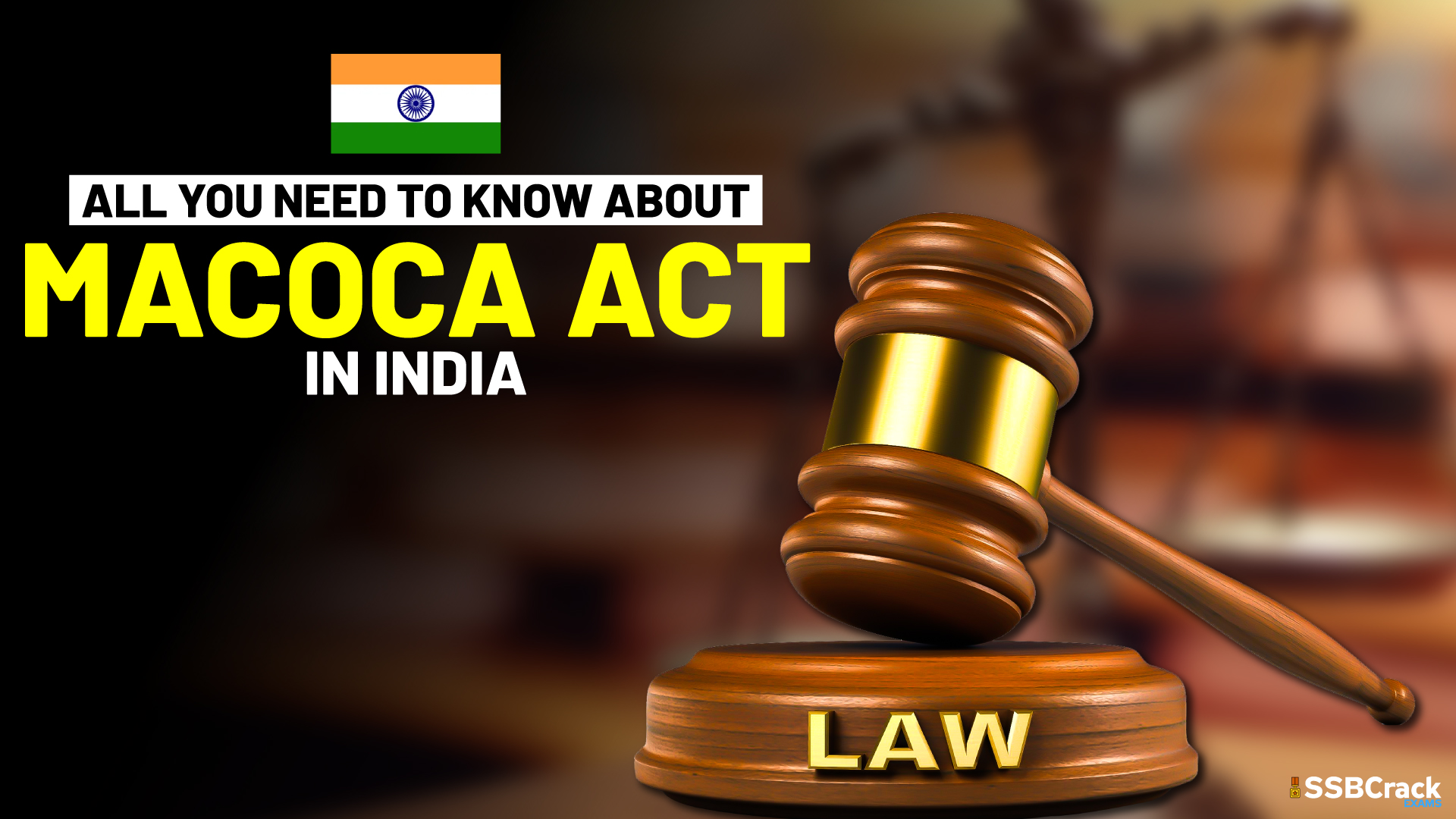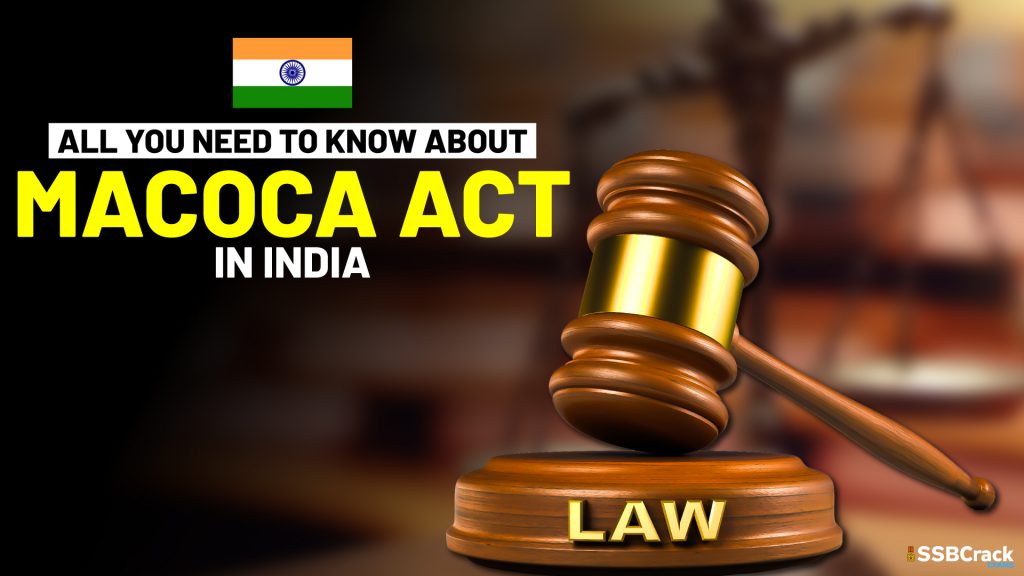Today, in this article we will learn about MCOCA Act. In order to combat organised crime and terrorism, the Indian state of Maharashtra passed the Maharashtra Control of Organized Crime Act, 1999 (Mah. 30/1999).
The “MCOCA” Act, which grants the State Government exceptional authority to address these problems, includes surveillance powers, loose procedural and evidentiary safeguards, and the prescription of additional criminal penalties, including the death penalty.
What is MCOCA?
MCOCA, or the Maharashtra Control of Organized Crime Act, was introduced in 1999 to combat organised crime in the state of Maharashtra. Despite what the act’s title might suggest, however, the Home Ministry of the Government of India expanded the act’s applicability to include the state of NCT of Delhi in a notification dated 2 January 2002. As a result, Delhi and Maharashtra are currently the only states to which the Act is applicable. Regardless of any other provisions of any already in force laws, the Act’s provisions shall apply.
Need for MCOCA?
Organized crime syndicates were increasingly committing crimes like contract assassinations, extortion, smuggling in contraband, illegal drug trade, kidnappings for ransom, collecting protection money, and money laundering, among others. There was an urgent need to enact strict legislation to deter such organised criminality. The government understood that organised crime organisations were promoting drug terrorism outside of national borders and had ties to terrorist gangs. MCOCA was introduced with the goal of stopping organised crime, which posed a significant threat to society.
Special features
- Despite the provisions of section 167 CR.P.C, a special court may extend the deadline for filing a charge-sheet by up to 180 days if there is a compelling reason to keep the accused in custody for longer than 90 days and if there is a report from the public prosecutor outlining the status of the investigation.
- A person accused of an offence punishable under the ACT is not eligible for an anticipatory bail.
- If the court learns that the accused was out on bail for an offence punishable under this Act or another law on the date of the offence under this Act, NO bail is permitted.
- Before taking someone into custody for questioning, a police officer must submit a written statement outlining his justifications.
- Despite anything in the CR.P.C., the court cannot release someone on bond unless it is clear that they are innocent and won’t commit another crime while they are out on bail. This rule applies even when the public prosecutor has been given the opportunity to object to the release.
- Any confession made to a police officer not below the level of superintendent of police is admissible as evidence in a proceeding under this Act, regardless of anything stated in the Evidence Act or any other law.
Special provision to avoid misuse of power under the Act.
- Prior approval of a police officer not below the rank of director general of police is necessary for recording information about an offence under the Act.
- An officer with at least the level of DSP can conduct an investigation into an offence under the Act.
- Without the previous consent of a police officer not below the rank of Additional Director General of Police, no special court may take cognizance of an offence.
- Any public employee who aids in the commission of an Act offence or fails to take any action that is required of him by law is subject to a three-year maximum sentence in jail or a fine.
Jurisdiction of courts under MCOCA
Only the special courts established by the Act may adjudicate any offence punished under this Act. If the offence is connected to any other offence with which the accused may be prosecuted under the Code at the same trial, a special court may also try those offences and may also punish the offender in accordance with the other law’s penalty guidelines. The special court may transfer the case to other court if after taking cognizance under this act it appears to it that the no offence under this act is committed.
Every appeal against a decision made under this Act, including decisions, orders, and sentences, must be filed with the high court of the state in question within thirty days of the decision’s date.
If you liked the article do like and share. If you are preparing for defence exams and SSB Interview, SSBCrackExams is providing a number of courses and study material. Join today and boost up your preparation.
To crack the SSB interview, You can join our SSB interview live classes batch and we recommend you to Enroll SSB INTERVIEW ONLINE COURSE. Trusted by thousands of defence aspirants.
Also Read:
- Lok Sabha: Indian Polity Notes For Defence Exams
- The President Of India: Indian Polity Notes For Defence Exams
- How The President Of India Is Elected? [Fully Explained]
- How Vice President Of India Is Elected? [Fully Explained]
- Rajya Sabha: Indian Polity Notes For Defence Exams
- List Of Viceroys In India From 1858 To 1947: Indian Polity Notes For Defence Exams
- List Of Schedules Of Indian Constitution: Indian Polity Notes For Defence Exams
- Fundamental Duties: Indian Polity Notes For Defence Exams
- Directive Principles Of State Policy: Indian Polity Notes For Defence Exams
- 5 Types Of Writs Indian Polity Notes For Defence Exam














